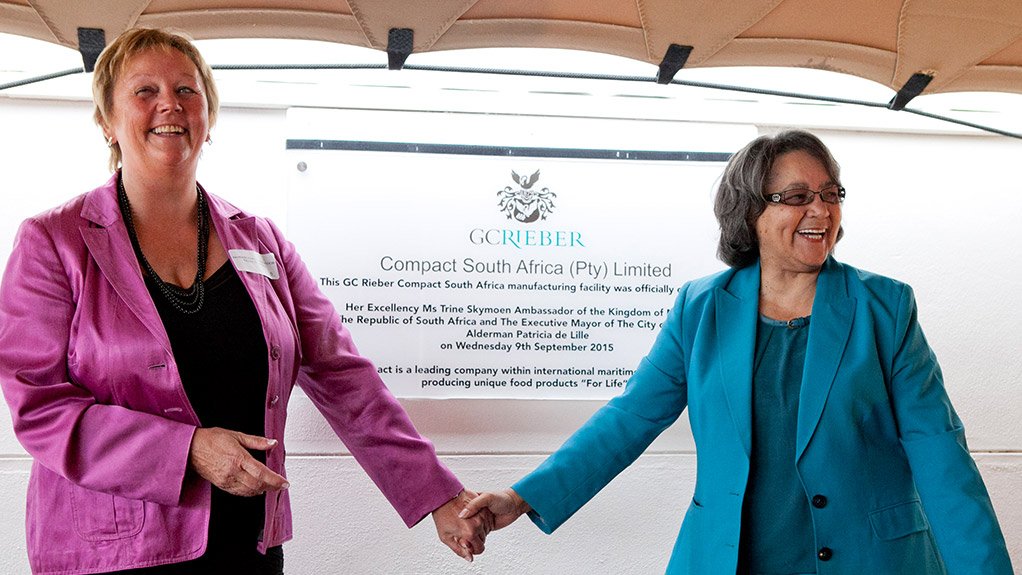A multimillion-rand United Nations Children's Fund- (Unicef-) accredited ready-to-use therapeutic food production facility opened in Cape Town on Wednesday, geared towards curbing severe acute malnutrition in children.
The project was a joint venture between South African shareholders and Norwegian company GC Rieber Compact, a supplier of food products for malnutrition, maritime survival and preparedness within the humanitarian and maritime fields.
GC Rieber Compact South Africa CEO Guy Baxter noted that the facility represented a clear vote of confidence in South Africa as an investment destination.
Cape Town executive mayor Patricia de Lille, who attended the launch, stated that one of the city’s strategic objectives was to build an “opportunity city” and it had escalated its efforts to create the economically enabling conditions that would allow businesses to thrive, which, in turn, would attract more investment and ultimately create jobs.
“We understand that to achieve this, we need to make it as easy as possible for companies to do business in the City of Cape Town. Our vision is to act as a gateway into Africa and become a melting point for East and West, North and South – to create new markets in Africa. This is our vision and we want to work with stakeholders to ensure that we make progress possible together.”
Norwegian Ambassador to South Africa Trine Skymoen, who also spoke at the launch, said: “This new chapter provides both countries with an opportunity to extend and build on a long history of mutual cooperation. Even more heartening is that while this business partnership brings economic benefits to both South Africa and Norway, it also tackles the global challenge of child malnutrition, which is a matter of grave concern to us all as citizens of the world.”
Unicef had noted that severe acute malnutrition contributed to one-million child deaths every year and nearly half of all deaths in children under the age of five were attributable to undernutrition – equal to 3.1-million children each year.
According to the World Food Programme, sub-Saharan Africa had the highest prevalence of hunger, with one person in four being undernourished.
Baxter said the facility, which was in close proximity to critical areas, would provide an opportunity for Africa to create “life-saving nutritional solutions” for her own people.
“That said, we ship our food to whichever global destination needs it. Only last month, Unicef ordered product from us to be delivered to North Korea,” he highlighted.
The facility made and distributed a ready-to-use therapeutic food product called eeZeePaste NUT, specifically designed for extremely malnourished children between the ages of 6 and 24 months.
Each 92 g sachet contained easily available energy, micronutrients and high-quality proteins. Designed to be consumed directly from the sachet without any preparation, the product had a 24-month shelf life and was easily transportable, making it an ideal response to malnutrition in remote or difficult to access areas.
At current levels, the facility, through which more than 20 jobs had been created, could produce about 3 000 metric tons of paste products a year.
“The success of the operation has meant we are looking at ramping up production capacity and expanding our product offering into supplementary food products too. That means more investment and more jobs, which is just what this country needs,” Baxter added.
EMAIL THIS ARTICLE SAVE THIS ARTICLE
To subscribe email subscriptions@creamermedia.co.za or click here
To advertise email advertising@creamermedia.co.za or click here











